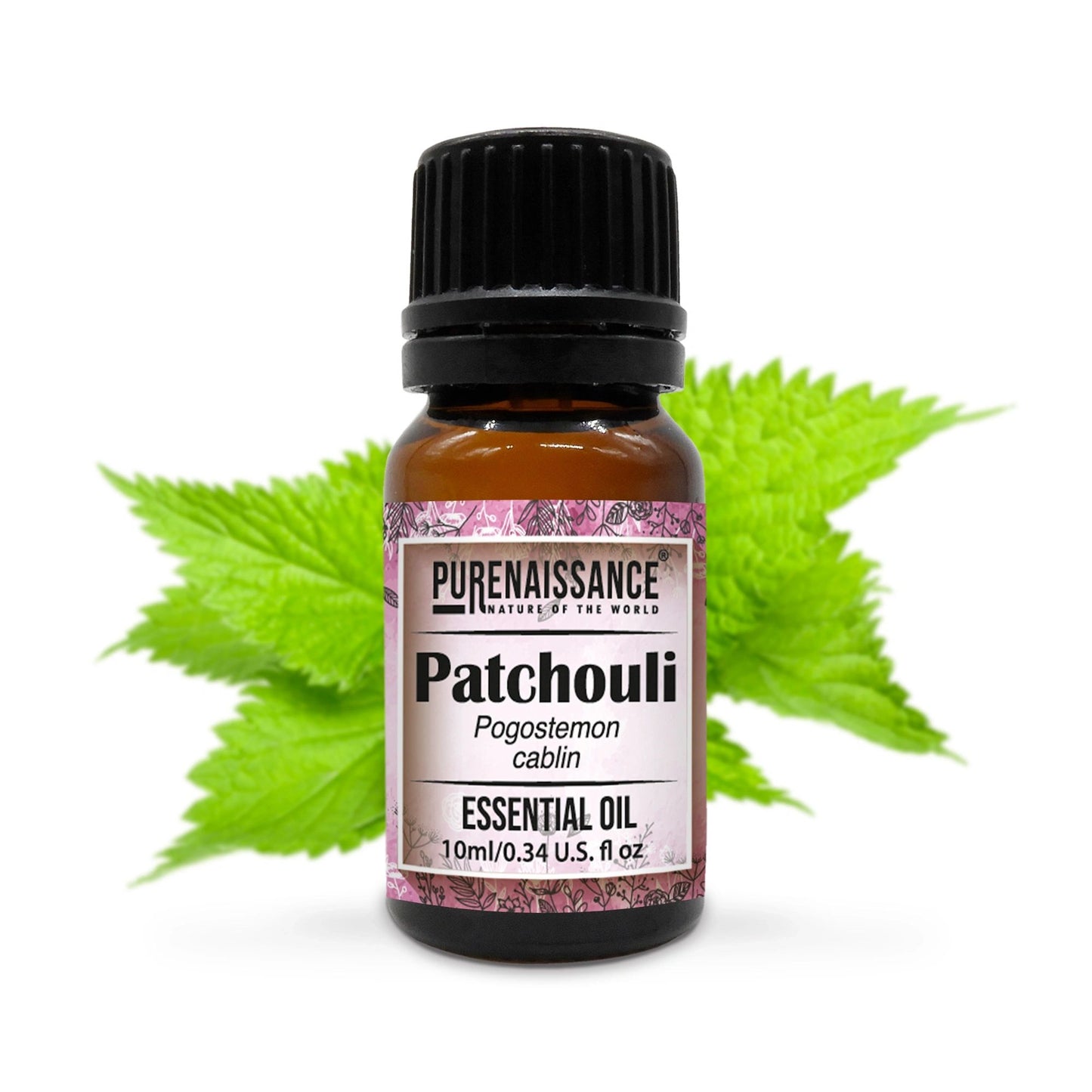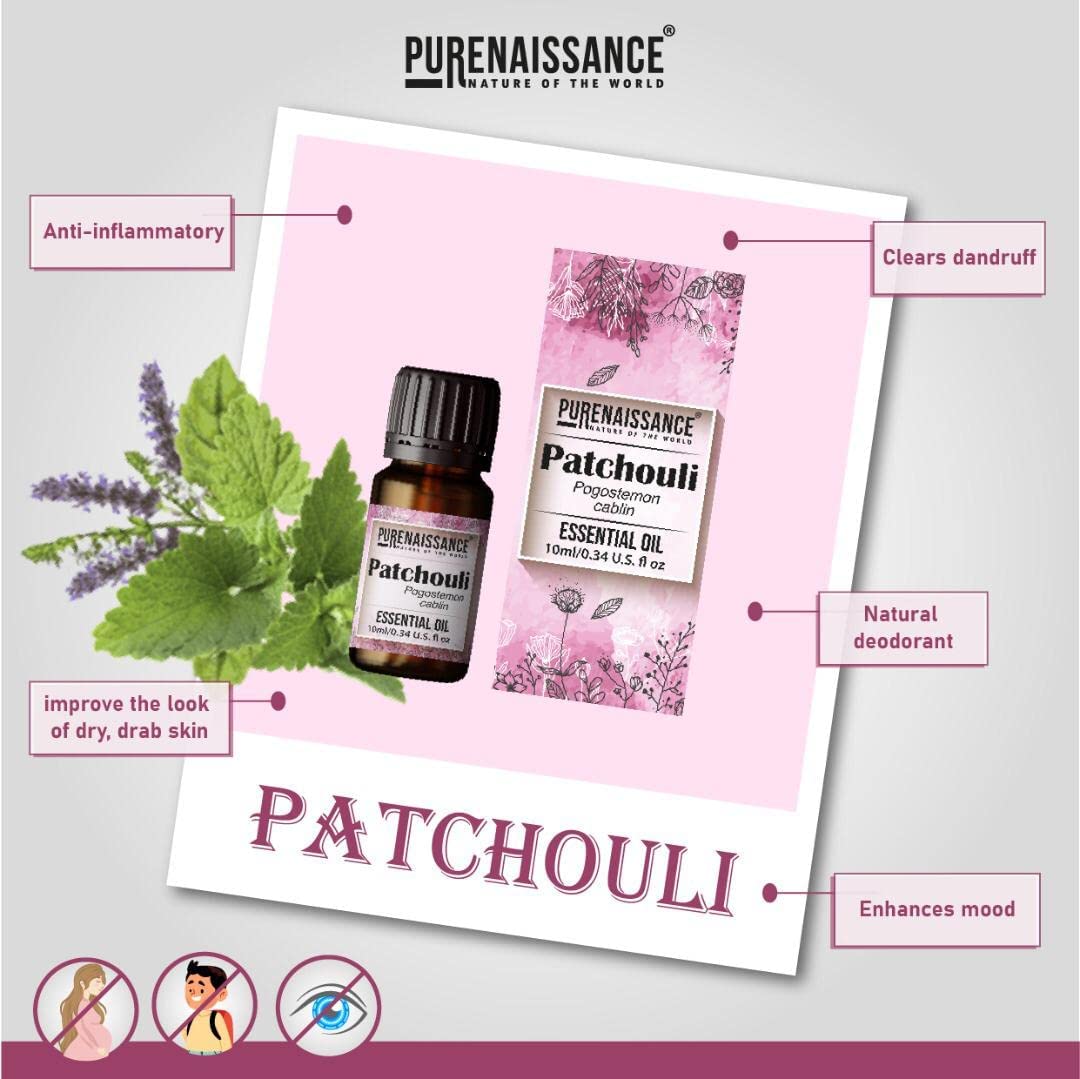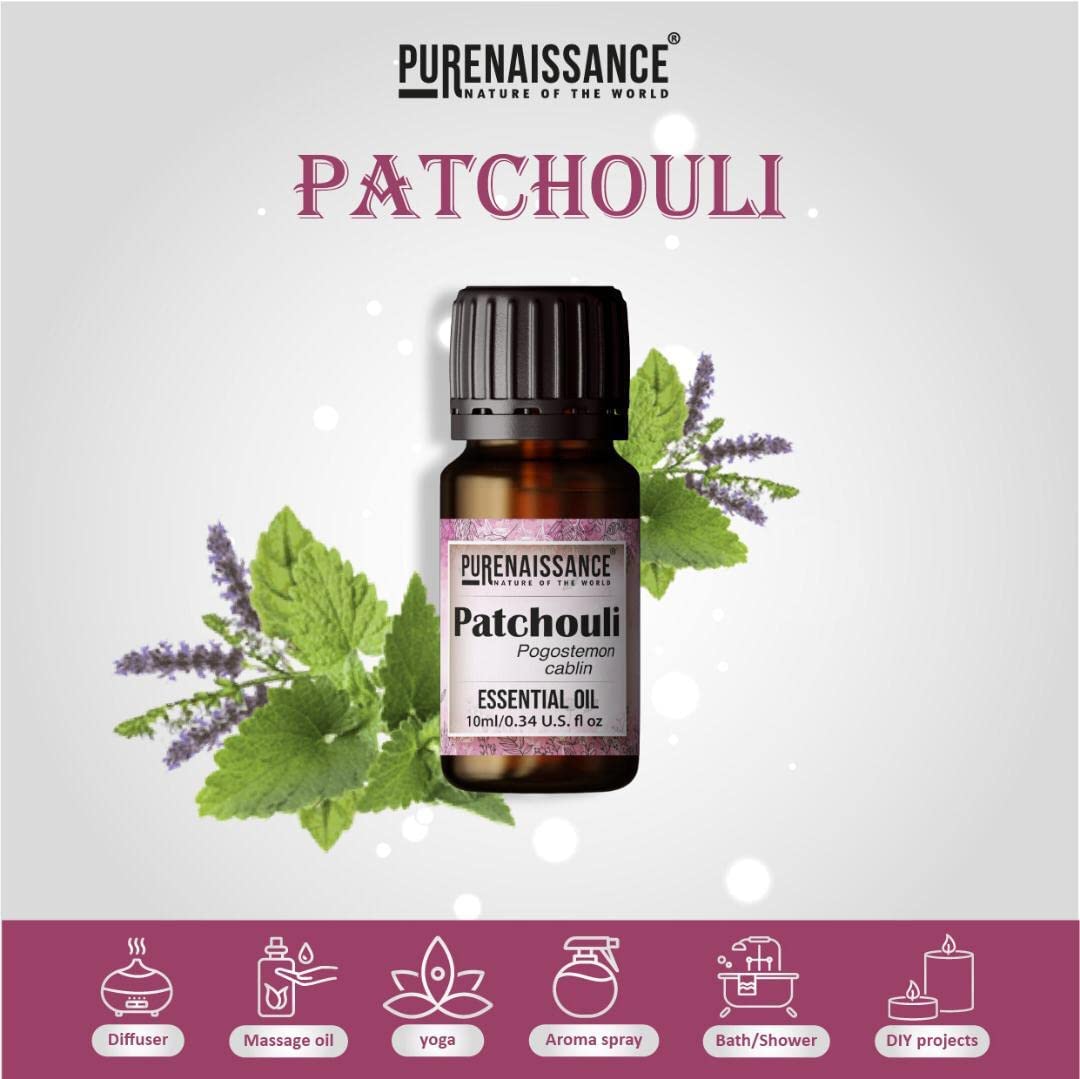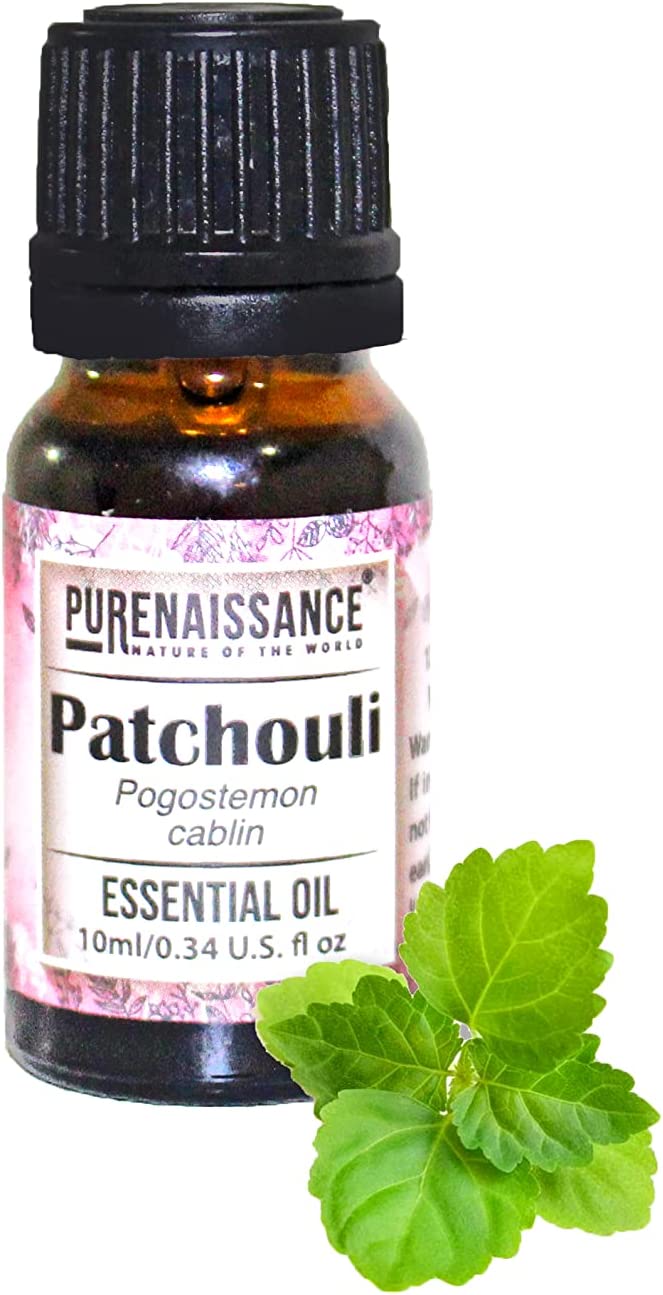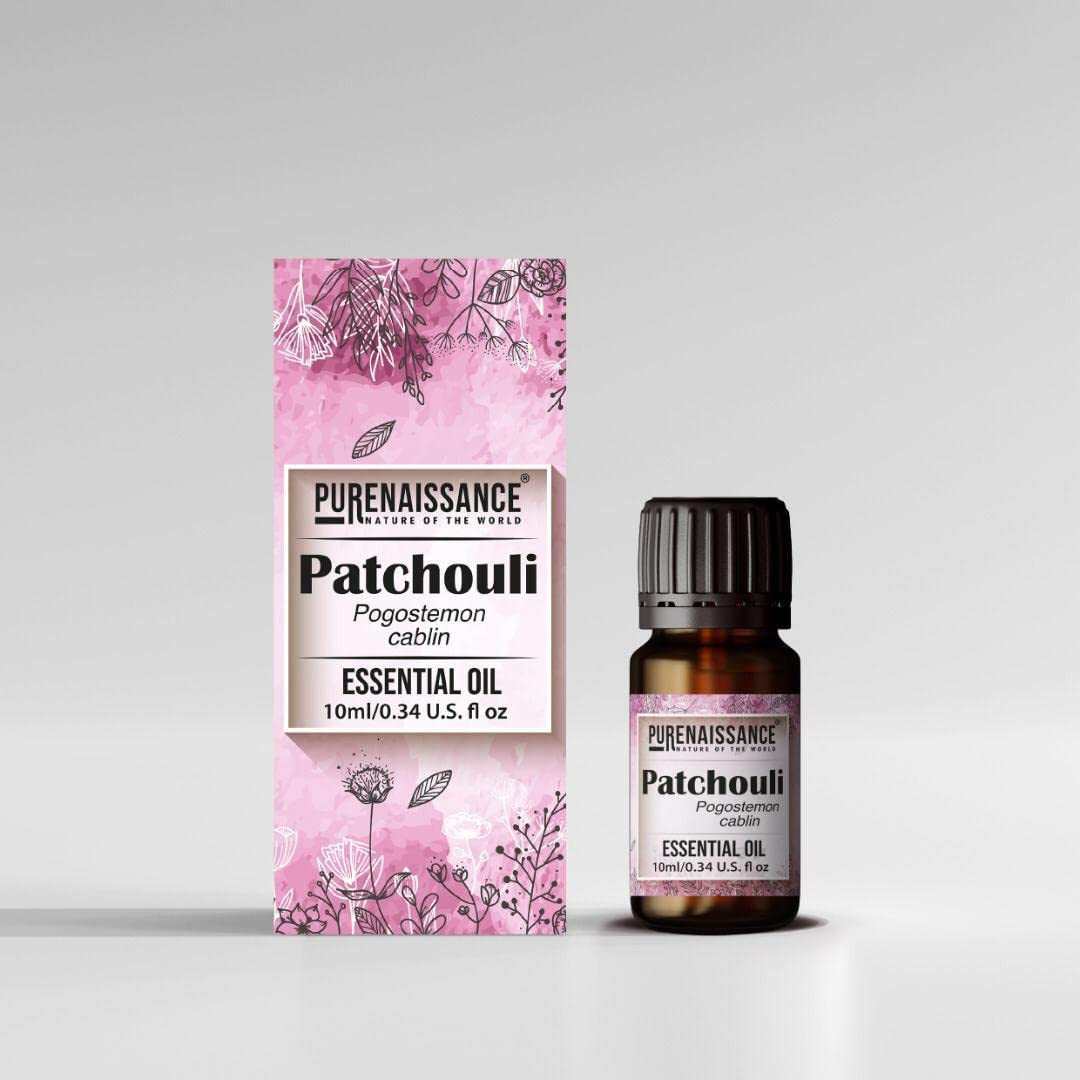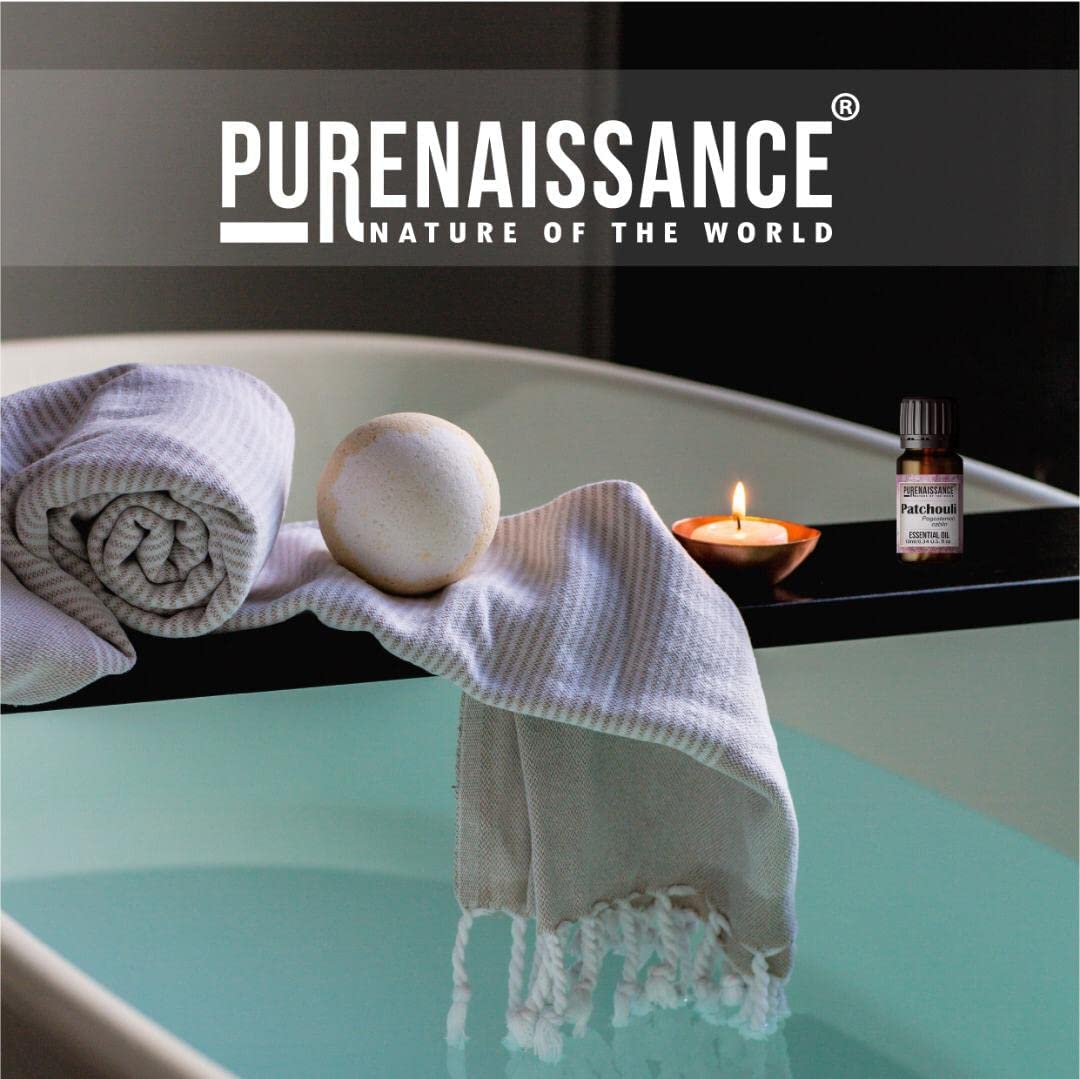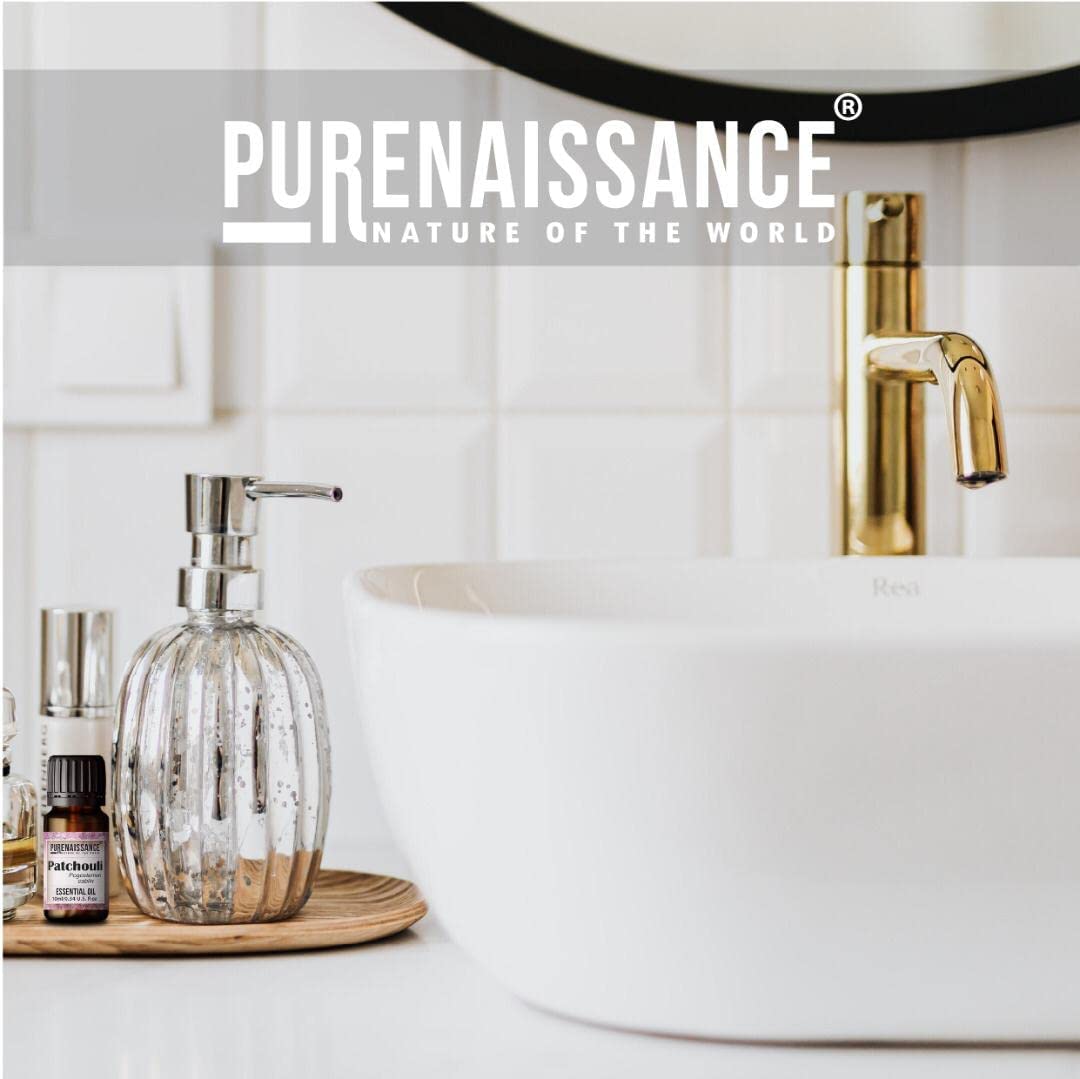1
/
of
7
Purenaissance
Pure Patchouli Essential Oil Purenaissance Therapeutic Grade, Best for Aromatherapy and Diffuser/10ml
Pure Patchouli Essential Oil Purenaissance Therapeutic Grade, Best for Aromatherapy and Diffuser/10ml
Regular price
$8.00 USD
Regular price
$11.00 USD
Sale price
$8.00 USD
Unit price
/
per
Couldn't load pickup availability
What is Patchouli Essential Oil:
Native to Indonesia, Patchouli has large fragrant, downy leaves with majestic white flowers. It was introduced in England and France in the 19th century thanks to the success of cashmere shawls imported from Asia. To transport and protect them from moths during their boat trip, these shawls were wrapped in patchouli leaves and then displayed in the beautiful neighborhoods.
The warm, spicy, musky and sensuous scent of Patchouli Essential Oil is commonly associated with the hippy generation and referred to as “the scent of the sixties.”
This oil is derived from the leaves of the highly-valued Patchouli plant, which belongs to a family of other well-known aromatic plants, including Lavender, Mint, and Sage. In the Asian countries, it was traditionally used in folk medicine to treat hair problems like dandruff and oily scalp, as well as skin irritations like dryness, acne, and eczema.
Patchouli Essential Oil is presently used for various purposes including perfumery, aromatherapy, cosmetic products, home cleaning products, and clothing detergents. Through any of these methods, the calming scent of the essential oil relieves anxiety, stress, and depression, making it effective for achieving relaxation, especially in meditation.
Patchouli Essential Oil Technical Data:
Common Name: Patchouli, pogostemon patchouli
Latin name: Pogostemon cablin
Appearance: viscous liquid
Color: yellow to brown or amber
Odor: woody, earthy and aromatic fragrance
Botanical Family: Lamiaceae
Organ: Flowering herbs, dried leaves
Processing Method: Steam distillation
Type: 100% pure.
Origin: USA
Preferred uses: Dermal, Internal, respiratory tract
Chemical composition:
Main chemical compounds:
Sesquiterpenes (Alpha-bulnesene, Alpha-gaiene, Alpha-patchoulene, Beta-caryophyllene) 37 to 60%
Sesquiterpenols (Patchoulol, Pogostol) 33 to 40%
Other chemical compounds:
Monoterpenes (Alpha-pinene, Beta-pinene, Limonene)
Physical characteristics:
A good Patchouli essential oil must have the following physical characteristics:
Density at 20 ° C: 0.955 to 0.975
Refractive index at 20 ° C: 1,500 to 1,512
Rotatory power at 20 ° C: - 66 ° to -40 °
Flash point: + 116 ° C
Storage conditions:
Store in tightly closed original container, in a cool, dry & ventilated area away from heat sources & protected from light. Keep air contact to a minimum. Do not eat, drink or smoke whilst handling.
Keep away from ignition sources and naked flame.
Properties of patchouli essential oil:
IN HEALTH
Anti-inflammatory
Skin Lymphatic
Decongestant
Venous decongestant
Skin regenerator
Stimulant digestive
Lymphatic tonic
Venous tonic
WELL-BEING
Aphrodisiac balancing
Nervous Stimulating
IN BEAUTY
Anti-inflammatory
Skin Antiseptic
Skin regenerator
Indications of the essential oil of patchouli:
Cutaneous application (bath, cold compress, massage): Acne, cellulite, oily hair, scar, hair loss, crevice, allergic dermatitis, inflammatory dermatosis, difficult digestion, slow digestion, eczema, eschar, fatigue, impetigo, heavy legs, mycosis scalp, nervousness, cutaneous parasitosis, dry skin, oily skin, dandruff, wrinkles, stress, overwork, nervous tension, blood circulation disorder, sleep disorder, varicose veins.
Respiratory (diffusion, inhalation, olfaction): Anxiety, anxiety, fatigue, nervousness, stress, overwork, nervous tension, sleep disorders.
Internal route (oral, rectal, vaginal): Intestinal infection.
Tips for using patchouli essential oil for health:
SKIN BENEFITS: Acne, eczema, cutaneous parasitosis, wrinkles: dilute a few drops of patchouli essential oil in a vegetable oil, a cream of care or a mask for a local application.
Hair loss, oily hair, dandruff, mycosis of the scalp: dilute a few drops in the shampoo to apply all the hair and massage the scalp.
Recent scar: dilute a few drops of patchouli essential oil in a vegetable oil to apply locally.
Crevasse, allergic dermatitis, inflammatory dermatitis, eschar, impetigo: dilute a few drops of patchouli essential oil in a vegetable oil and apply to the area to be treated. Dilute in a neutral base to add to the bath water.
CARDIOVASCULAR AND CIRCULATORY BENEFITS
Cellulite, edema, water retention, varicose veins: dilute a few drops of essential oil in a vegetable oil to massage the part to be treated.
Hemorrhoids: dilute in a vegetable oil to apply locally.
Heavy legs: dilute a few drops of patchouli essential oil in a vegetable oil, to massage the legs from the bottom to the top.
DIGESTIVE BENEFITS
Difficult digestion, slow digestion: dilute a few drops of patchouli essential oil in a vegetable oil to massage the belly.
Intestinal infection: internally after medical consultation.
Tips for using patchouli essential oil for psychological well-being:
Anxiety: use patchouli essential oil in olfaction, diffusion or inhalation.
Fatigue, nervousness, sleep disorder, stress, overwork, nervous tension: dilute a few drops of patchouli essential oil in a vegetable oil to massage the spine, soles and solar plexus. Also in olfaction, diffusion or inhalation.
Tips for using patchouli essential oil for beauty:
Acne, recent scar, dry skin, fat skin, wrinkles: use the essential oil in fumigation. Dilute a few drops in a vegetable oil or a care cream to apply locally. Mix 10 drops of patchouli essential oil with milk powder (or other neutral base) and add to the bath water.
Synergies with patchouli essential oil:
With essential oils of palmarosa, carrot, rosewood, true lavender, sandalwood for dry skin.
With essential oils of sandalwood and lemon balm to promote relaxation.
With lemongrass essential oil against stress, depression.
Precautions and contraindications of patchouli essential oil:
Patchouli essential oil is a relatively mild oil that can be used during pregnancy from the fifth month. It can also be used during breastfeeding and by children over 3 years old.
First Aid Measures
Inhalation: Inhalation may cause coughing, tightness of the chest and irritation of the respiratory system. Move the exposed person to fresh air at once. Get medical attention if any discomfort continues.
Ingestion: If necessary, rinse mouth and provide fresh air. Get medical attention if any discomfort continues.
Skin contact: If necessary remove contaminated clothing and wash skin with soap and water. Get medical attention if any discomfort continues.
Eye contact: Immediately flush with plenty of water for up to 15 minutes. Remove any contact lenses and open eyes wide apart. Get medical attention if any discomfort continues.
Native to Indonesia, Patchouli has large fragrant, downy leaves with majestic white flowers. It was introduced in England and France in the 19th century thanks to the success of cashmere shawls imported from Asia. To transport and protect them from moths during their boat trip, these shawls were wrapped in patchouli leaves and then displayed in the beautiful neighborhoods.
The warm, spicy, musky and sensuous scent of Patchouli Essential Oil is commonly associated with the hippy generation and referred to as “the scent of the sixties.”
This oil is derived from the leaves of the highly-valued Patchouli plant, which belongs to a family of other well-known aromatic plants, including Lavender, Mint, and Sage. In the Asian countries, it was traditionally used in folk medicine to treat hair problems like dandruff and oily scalp, as well as skin irritations like dryness, acne, and eczema.
Patchouli Essential Oil is presently used for various purposes including perfumery, aromatherapy, cosmetic products, home cleaning products, and clothing detergents. Through any of these methods, the calming scent of the essential oil relieves anxiety, stress, and depression, making it effective for achieving relaxation, especially in meditation.
Patchouli Essential Oil Technical Data:
Common Name: Patchouli, pogostemon patchouli
Latin name: Pogostemon cablin
Appearance: viscous liquid
Color: yellow to brown or amber
Odor: woody, earthy and aromatic fragrance
Botanical Family: Lamiaceae
Organ: Flowering herbs, dried leaves
Processing Method: Steam distillation
Type: 100% pure.
Origin: USA
Preferred uses: Dermal, Internal, respiratory tract
Chemical composition:
Main chemical compounds:
Sesquiterpenes (Alpha-bulnesene, Alpha-gaiene, Alpha-patchoulene, Beta-caryophyllene) 37 to 60%
Sesquiterpenols (Patchoulol, Pogostol) 33 to 40%
Other chemical compounds:
Monoterpenes (Alpha-pinene, Beta-pinene, Limonene)
Physical characteristics:
A good Patchouli essential oil must have the following physical characteristics:
Density at 20 ° C: 0.955 to 0.975
Refractive index at 20 ° C: 1,500 to 1,512
Rotatory power at 20 ° C: - 66 ° to -40 °
Flash point: + 116 ° C
Storage conditions:
Store in tightly closed original container, in a cool, dry & ventilated area away from heat sources & protected from light. Keep air contact to a minimum. Do not eat, drink or smoke whilst handling.
Keep away from ignition sources and naked flame.
Properties of patchouli essential oil:
IN HEALTH
Anti-inflammatory
Skin Lymphatic
Decongestant
Venous decongestant
Skin regenerator
Stimulant digestive
Lymphatic tonic
Venous tonic
WELL-BEING
Aphrodisiac balancing
Nervous Stimulating
IN BEAUTY
Anti-inflammatory
Skin Antiseptic
Skin regenerator
Indications of the essential oil of patchouli:
Cutaneous application (bath, cold compress, massage): Acne, cellulite, oily hair, scar, hair loss, crevice, allergic dermatitis, inflammatory dermatosis, difficult digestion, slow digestion, eczema, eschar, fatigue, impetigo, heavy legs, mycosis scalp, nervousness, cutaneous parasitosis, dry skin, oily skin, dandruff, wrinkles, stress, overwork, nervous tension, blood circulation disorder, sleep disorder, varicose veins.
Respiratory (diffusion, inhalation, olfaction): Anxiety, anxiety, fatigue, nervousness, stress, overwork, nervous tension, sleep disorders.
Internal route (oral, rectal, vaginal): Intestinal infection.
Tips for using patchouli essential oil for health:
SKIN BENEFITS: Acne, eczema, cutaneous parasitosis, wrinkles: dilute a few drops of patchouli essential oil in a vegetable oil, a cream of care or a mask for a local application.
Hair loss, oily hair, dandruff, mycosis of the scalp: dilute a few drops in the shampoo to apply all the hair and massage the scalp.
Recent scar: dilute a few drops of patchouli essential oil in a vegetable oil to apply locally.
Crevasse, allergic dermatitis, inflammatory dermatitis, eschar, impetigo: dilute a few drops of patchouli essential oil in a vegetable oil and apply to the area to be treated. Dilute in a neutral base to add to the bath water.
CARDIOVASCULAR AND CIRCULATORY BENEFITS
Cellulite, edema, water retention, varicose veins: dilute a few drops of essential oil in a vegetable oil to massage the part to be treated.
Hemorrhoids: dilute in a vegetable oil to apply locally.
Heavy legs: dilute a few drops of patchouli essential oil in a vegetable oil, to massage the legs from the bottom to the top.
DIGESTIVE BENEFITS
Difficult digestion, slow digestion: dilute a few drops of patchouli essential oil in a vegetable oil to massage the belly.
Intestinal infection: internally after medical consultation.
Tips for using patchouli essential oil for psychological well-being:
Anxiety: use patchouli essential oil in olfaction, diffusion or inhalation.
Fatigue, nervousness, sleep disorder, stress, overwork, nervous tension: dilute a few drops of patchouli essential oil in a vegetable oil to massage the spine, soles and solar plexus. Also in olfaction, diffusion or inhalation.
Tips for using patchouli essential oil for beauty:
Acne, recent scar, dry skin, fat skin, wrinkles: use the essential oil in fumigation. Dilute a few drops in a vegetable oil or a care cream to apply locally. Mix 10 drops of patchouli essential oil with milk powder (or other neutral base) and add to the bath water.
Synergies with patchouli essential oil:
With essential oils of palmarosa, carrot, rosewood, true lavender, sandalwood for dry skin.
With essential oils of sandalwood and lemon balm to promote relaxation.
With lemongrass essential oil against stress, depression.
Precautions and contraindications of patchouli essential oil:
Patchouli essential oil is a relatively mild oil that can be used during pregnancy from the fifth month. It can also be used during breastfeeding and by children over 3 years old.
First Aid Measures
Inhalation: Inhalation may cause coughing, tightness of the chest and irritation of the respiratory system. Move the exposed person to fresh air at once. Get medical attention if any discomfort continues.
Ingestion: If necessary, rinse mouth and provide fresh air. Get medical attention if any discomfort continues.
Skin contact: If necessary remove contaminated clothing and wash skin with soap and water. Get medical attention if any discomfort continues.
Eye contact: Immediately flush with plenty of water for up to 15 minutes. Remove any contact lenses and open eyes wide apart. Get medical attention if any discomfort continues.
Share
